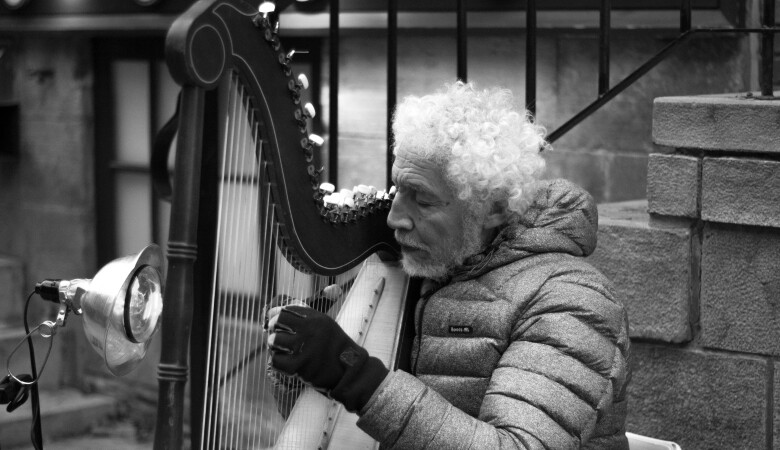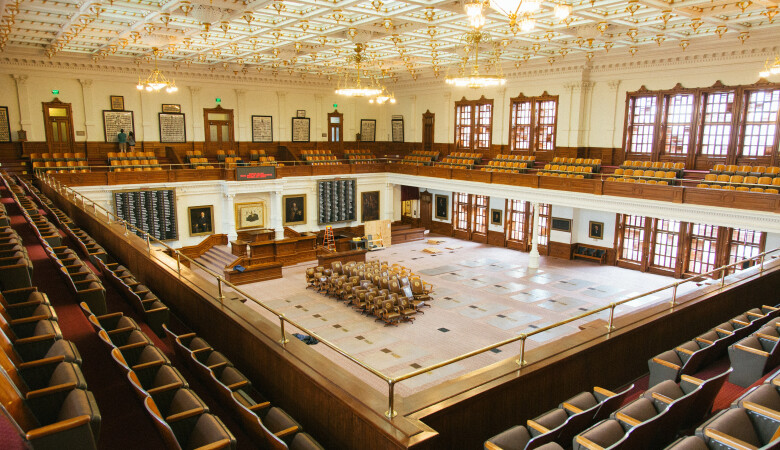Veiled in Flesh: God Without Honor (Matthew Sermon 66 of 151)
August 31, 2003 | Andy Davis
Matthew 13:53-58
Introduction
Today we are going to finish this phase of preaching in Matthew. It's been a delightful time as we've studied and looked in the Gospel of Matthew 13. We've seen again and again the unifying theme is the kingdom of heaven, and specifically the King of the Kingdom of Heaven, and that is Jesus Christ, from the genealogy right at the beginning of Matthew 1, up until the end of chapter 13. We've seen much evidence that Christ is not only the Son of Man, but also Son of God, that He is God in the flesh. We’ve seen that His works and His words are unlike any that's ever lived, and that the evidence for Him, being the king of the kingdom of heaven is sufficient. It is sufficient so that we will entrust our lives to Him; that we will in fact come to Him and take His yoke upon us and learn from Him because He is gentle and humble in heart, and that we can yield our stubborn, rebellious necks to His yoke. We can submit to His kingship; we can follow Him and His yoke because it is easy, and his burden is light. He will lead us into the visible face-to-face presence of God and the perfected Kingdom of Heaven. I'm yearning for that. We've seen that, especially in this chapter 13, with the parables one after the other.
On a daily basis, I gather my family around something we call a family altar, and we read through books of the Bible as a family. The same thing I do here on Sunday morning is go verse by verse through books of the Bible. We go a little faster in the family, but that's alright. We're excited to learn whatever God would have for us. We took a poll with our kids about the next book after we finished the book of Hebrews, and they wanted to do two of them. The third is willing, and we're probably going to go to the other book that she wanted, the Book of Isaiah. But two of them wanted the Book of Revelation. I quailed and tremble and I said, "I don't understand that book, but I can teach you it at home long before I'll preach it to you. I will work on it at home and try to learn and try to understand, and that's what we're doing; we're moving through the Book of Revelation.
Revelation begins right at the start by saying, "The purpose of the book is that it is a book of Revelation. The word “revelation” is the English form of the Greek Word “apokalupsis”, an unveiling, a removal of a veil that we might pull back the veil which has veiled our sight and see what's behind it, what's truly there. But the Book of Revelation is not so much a revelation of the future as most people think it to be. It is not so much a revelation of heaven although there is so much of that. Not so much a revelation of all the worship, and the living creatures and the angels, all veiled in their sight, not so much a vision or a revelation of heaven, and not so much a revelation of the destruction of Satan, and of the anti-Christ and all of their vile forces and their work in this world. It's not so much a revelation of the end of the world and of Judgment Day and of heaven and hell and the final states. It is all of these things, and I'm getting excited. I might as well just go ahead and preach in Revelation this morning, but I can't do it. But it is all of these things, but it is so much infinitely more because Revelation 1:1, says "The Revelation of Jesus Christ which God gave His servants.” It's an unveiling of Christ. More than all of the other things."
Why did Jesus Christ need to be unveiled? What of him is hidden from our sight? We don't understand when every Christmas we sing the Wesley’s hymn, “Hark the Herald Angels Sing”, and in that he writes, “Veiled in flesh, the Godhead see. Hail, the incarnate Deity.” Veiled in flesh. His flesh, his physical body in some way veils from our sight his true nature. He is veiled from us by His flesh.
Recently Steve & Vikki Cook wrote in a great song about this fathomless love. Speaking of the same thing, the song speaks of Christ, "Lord what moved your heart to love lowly man before any star could herald your praise. And why did you come abasing yourself veiled in a robe of frail human clay. Why would the adored become the despised to bear all the furious wrath that was mine?” This veil of human clay the veil of Christ, His incarnation; that the eternal God the Creator of the ends of the earth should take on a frail human form, a baby in a manger, that he should grow up like other boys in a neighborhood ,that he should have a regular family, and a regular family life, and that he should at some point present himself to his neighbors as God incarnate.
That is a stumbling block that is difficult to accept. The veil of flesh makes it hard and only the eye of faith can see Christ for who he truly is. It is faith alone that pulls back the veil that unveils Christ and sees not just a man, a Jewish carpenter, a great moral teacher or somebody worth studying, about whom there's been so much misunderstanding and mythology. No, it doesn't see that, it sees the incarnate God. It sees God in the flesh, and in seeing that, it believes for eternal life.
What Christ Gave Up, Temporarily
What did Christ give up when He came to this earth? What did He give up and what temporarily did He give up? He gave up the outward display of his glory and of heavenly worship. Soon, if God wills, we'll have an opportunity to look at Philippians Chapter 2. There it describes what I consider to be an infinite journey, a journey from the height of glory from the throne of glory in the center of heaven, all the way down past incarnation, all the way down even more, to death on a cross, a bloody cross from a throne of glory to a bloody cross — now that's an infinite journey. It says that, “Jesus being in very nature God, did not consider equality with God something to be grasped, but made himself nothing, taking the very nature of a servant being made in human likeness, and being found in appearance as a man.” He humbled himself and became obedient to death. Even death on a cross, and so here is Christ truly God, very God. A very God, begotten not made, this God, eternal God took on a human body, and He was worshipped constantly in Heaven, the glory of the pre-incarnate Christ.
We get glimpses of it in the Old Testament. For example, in Ezekiel Chapter 1, when Ezekiel had a vision, and he saw I believe the pre-incarnate Christ sitting on his throne. I think that Ezekiel 1, seems to me, stretches language almost to the breaking point, just like you get the sense in the Book of Revelation as well to try to explain what he saw. “I looked and I saw a windstorm coming out of the north. An immense cloud with flashing lightning and surrounded by brilliant light, the center of the fire looked like glowing metal, and in the fire was what looked like four living creatures. Fire moved back and forth among the creatures, it was bright, and lightning flashed out of it, the creatures sped back and forth like flashes of lightning, beside the creatures were crystallite wheels, intersecting wheels, Their rims were high and awesome, and all four rims were full of eyes all around spread out above the heads of the living creatures was what looked like an expanse sparkling like ice and awesome. When the creatures moved. I heard the sound of their wings like the roar of rushing waters, like the voice of the Almighty, like the tumult of an army. When they stood still, they lowered their wings, then there came a voice from above the expanse, over their heads as they stood with lowered wings above the expanse. High over their heads, was what looked like a throne of sapphire and high above on the throne was a figure like that of a man. I saw that from what appeared to be his waist up, he looked like glowing metal, as if full of fire and that from there down, he looked like fire and brilliant light surrounded him like the appearance of a rainbow in the clouds on a rainy day, so was the radiance around him. This was the appearance of the likeness of the glory of the Lord, and when I saw it, I fell face down.” That was a vision, I believe, of the glory of the pre-incarnate Christ, but actually not really of the Glory; a vision of the likeness of the appearance of the glory, because Ezekiel couldn’t handle the full glory and God wanted him to survive. So, God gave him just an appearance of the likeness of the image of the glory, so that he could survive the encounter. This is the glory of Christ pre-incarnate.
The worship of Christ is also described in Isaiah 6 with the seraphim, each with six wings. With two wings they cover their faces. They covered their faces, before Christ. With two wings, they covered their feet, and with two wings they were flying and calling to one another, “Holy, holy, holy is the Lord Almighty. The whole earth is full of His glory.” The apostle John says this of Christ in the book of Revelation. In John 12:41, it says, "Isaiah said this because he saw Jesus' glory and spoke about Him. This is the glory of Christ.” Did he give it up? Yes, he gave it all up. All the outward visible display of glory and the perfect worship of spiritual beings in heaven He gave up. What an infinite journey that was for him. To give that up and t come down to earth as a missionary really, the greatest missionary journey ever, the pattern of all missionary journeys, and that is the incarnation of Jesus Christ. No one, no one in history had as much to lose as Jesus.
I read recently about David Livingston, one of my missionary heroes, one of the great men of God, a missionary from England in Africa. His was a great adventure, but an adventure for Christ and for the gospel, and he suffered greatly. There were lots of difficulties in his life because of his calling as a missionary. He was often asked about this sacrifice of his life. People would come and say, "Talk to us about the sacrifices that you've made." And this is what he said, “People talk of the sacrifice I have made in spending so much of my life in Africa. Can that be called sacrifice, which is simply paid back, as a small part of the great debt owing to our God, which we can never repay? Away with such a word. Away with such a view and such a thought. It is emphatically, no sacrifice. Say rather it is a privilege. Anxiety, sickness, suffering, or danger may make us pause, and cause the spirit to waver, and sink. But let this only be for a moment. All these are nothing when compared with the glory, which shall hereafter be revealed in us and for us. I never made a sacrifice." Let me say that again, I never made a sacrifice. We ought not to talk, when we remember the great sacrifice which He made, who left His father's throne on high, to give Himself for us." David Livingstone. "I never made a sacrifice."
This was a free, willing, clear-headed choice on Christ's part. He was not compelled; he was not forced. Gladly, for the joy set before Him, He endured incarnation and all that it meant right up to the cross. Gladly and even more amazing that the adored would choose to become the despised. Jeremiah at one point said "Lord, you deceived me, you didn't tell me everything that was involved in the job description. I didn't know I'd be despised so much that I'd be hated and persecuted, so much." Said Jeremiah, "You deceived me.” What a shocking moment in the life of the prophet. God is not a deceiver.
But the Second Person of the trinity was in no way deceived about entering the Earth He knew. He knew very well what He would face. He knew the prophecies, that He would be despised and rejected, a man of sorrows and familiar with suffering, that his own would not receive Him, but reject Him, that He would be handed over to be mocked and flogged and crucified. He knew all these things. He knew that his incarnation, itself would be dis-believed, that his mother would be dishonored, that He himself would be dishonored, He knew all these things. He knew that his person, would be rejected, and He knew that it would all end in being crushed at the cross. He knew that. And yet he did it anyway. Isn't that incredible? Clearly understanding and doing it anyway.
We see the veil of flesh. He was veiled in flesh, He took on a human body, the hidden glory of the incarnation. This is, I believe, the central stumbling block of our faith called Christianity. He took on a human body that it might bleed and die on the cross as a sacrifice, and we have a hard time accepting this. The Jews of his day had a hard time accepting this. In John chapter 10, the great chapter in which he calls himself the Good Shepherd, the Jews don't understand, and Jesus says, "I and the Father are one, and again the Jews picked up stones to stone Him, but Jesus said to them. I have shown you many great miracles from the Father, for which of these are you stoning me? No, we are not stoning you for any of these, but for blasphemy. Because you a mere man, claim to be God.” That's a stumbling block. How can a mere man make that kind of claim? Don’t believe what the liberals and what other modern scholars tell you that Jesus never claimed to be God. Oh yes, He did. His own generation knew very well. He used all the language. “Before Abraham was born. I am.” He used the language of deity. He knew that He was God and He proclaimed himself to be God. They rejected it, and it's been rejected by great minds ever since, and by not so great minds.
Leo Tolstoy, the great writer, said, "I believe that Christ was a man like us. To look upon him as God would seem to me the greatest of sacrileges." Oh, I grieve. I hope he repented of that unbelief. He was a mere man claiming to be God. He had a physical body. He had eyes, he had a face, he had hands, he had hair. He had all of the physical trappings, and actually had them, not just merely appeared to have them. He truly did have them. He had a normal development, from infancy through boyhood, young manhood and then to full adulthood. Normal development. He had normal family relations with a mother and while he lived with his stepfather, not his true father, but with Joseph, and also with brothers and sisters that are listed in the passage we're reading. He had normal physical issues, he got hungry and needed to eat, he got thirsty and needed to drink, he got tired and needed to sleep. He had physical limitations, He could only be one place at one time, and most difficult of all, he had death. The Jehovah's witness says, "If He's God, then God is dead, on the cross." Yes, he is God and He was dead on the cross. They just don't understand the Trinity, and they don't understand, "Father into your hands. I commit to my spirit.” “Today, you'll be with me in paradise." They don't understand these things, but He was God, and He was, in fact, dead on the cross.
Yet for those with faith, for those with eyes to see and ears to hear, there is ample evidence of His deity. Not a small amount, but an ample, a feast of evidence actually. For example, his perfect moral character. He never sinned, He made it through 30 plus years in this alluring, enticing and attacking world without once sinning. No one else has ever done it, just Jesus. He spoke with a kind of authority and with an insight that we have been experiencing here in these parables and the Sermon on the Mount and his other great teachings that no one has ever even come close to. The perfection of teaching. He did miracles that cannot be accounted for humanly. He spoke to the wind and waves, and they obeyed Him. He spoke to dead people, and they came to life again, he spat on the ground and made mud and smeared it on blind eyes, and they could see. He put his fingers in deaf ears and breathed, and those deaf ears were opened. He could feed a huge crowd with a few scraps of bread. He could do anything, anything that power could do, He could do, and He had a supernatural knowledge of people's hearts and minds, He read their thoughts. There's ample evidence and even more, He fulfilled prophecy from cradle to grave from when He was born and all the way to how He died and then through His resurrection, all of it covered with prophecy.
There's ample evidence for the deity of Christ if you have eyes to see. Christ's glory was there all along. It was always there; it was just veiled by the flesh. It was part of God's strategy that we should believe by faith the Word that's preached. But it was always there. You remember how he took Peter, James, and John and led them up a high mountain by themselves and there He was transfigured before them, His face shone like the sun, His clothes became white as the light. They saw a brief glimpse of His glory. Did they see His full glory? We've already answered that earlier. No, they couldn't survive. Flesh and blood cannot inherit the Kingdom of God, they couldn't see His full glory, but they saw a brief glimpse of it, and they never forgot. The glory was still there, and it was there all long, and the glory can be seen also in the cross. If you have faith and a mind to understand what was going on there. The glory of the cross is unspeakable, it's incredible, I can't describe it. You see the attributes of God so perfectly displayed at the cross. His wrath and his justice in that he would rather have His son die suffering, than let any one of us sinners in heaven un-atoned for. That's His holiness, perfectly displayed at the cross. His love perfectly displayed in his compassion, in that the wrath and justice was poured out on a substitute, not on us. Poured out on his own Son, the glory of Christ could be seen, if you had faith to see it.
The dishonor therefore of Christ is only temporary. Isn't that glorious? His dishonor would only be temporary. And why? Because Christ made three great requests of his Heavenly Father in prayer. Did you know that everything that Christ asked for, he gets? He bats 1000 in His prayer life, to use a baseball analogy. Everything He asked for, He gets. Three great requests. John 17: 5, “Give it back, I laid it down. The work is finished, now give it back." Now that would be blasphemous if He weren’t the Second Person in the Trinity, because God said in Isaiah, "He will not share his glory with another." So, "Give me my glory back." That's the first request. The second, "Give me the nations as my inheritance." Psalm 2, "And I will rule them with an iron sceptre. I'll dash them to pieces like pottery. I will be King of Kings and I will be Lord of lords. All authority in heaven and earth has been given to me." Did Christ ask? Yes, he did. He asked, "Give me the nations." And the Father said, "Here they are, they're yours.” He has all authority in heaven and on earth.
What's the third great request? "Give me my chosen ones, give me my elect, give me my sheep, that not one of them will perish." Has he made that request? Yes, he has. "Father, I want those whom you have given me, to be with me, where I am, and to see my glory. The glory you have given me, because you loved me before the foundation of the world." Is He going to have that? He will, it's just not finished yet. So, his glory is eternal, his dishonor was only temporary, and someday, He will return, and every eye will see Him, even those who pierced Him and all nations on earth will mourn because of Him. They will see and they will know. The Book of Revelation makes it plain in Revelation 1, and in Revelation chapter 19, the second coming of Christ. There will be a great unveiling at that point. Faith will not be required. No need for faith at that moment. You'll see it. Every eye will see it, and you will see the glory of Christ. But all nations, it says, will mourn at that point. Now is the day of faith. Today is the day of salvation, this is the time of faith, now, hearing and believing a preached message and thinking it's all true.
Christ Dishonored by Disbelief
But Christ, while he walked on earth, he was dishonored by disbelief. We're looking at Matthew 13, "And he visits his hometown." In verse 53 and 54 it says, "When Jesus had finished these parables, he departed from there, and he came to his hometown and began teaching them in their synagogue, so that they were astonished." They said, "Where did this man get this wisdom and these miraculous powers?" Jesus' ministry base while he was on earth was Capernaum, but that wasn't his hometown. His hometown, the Greek word here is "Patris", his hometown was Nazareth, and He goes back there. This is where He grew up, this is where He lived his boyhood years, and He went back to His hometown and He began teaching them. This is what He always did. This was His ministry. He went into the synagogue, which was the centre of Jewish life, away from the temple. They only had to go to the temple three times a year, the rest of the weeks they spent the Sabbath studying the Word of God, receiving teaching in the synagogues.
Jesus went into the synagogue and began teaching them in their synagogue, and they were amazed. Jesus had earlier preached the Gospel, had preached the Kingdom, the message of the Kingdom in Nazareth, and the people had rejected him. It says that they were amazed. They're amazed, but unconverted. They're amazed, but unconvinced. It's the amazement, I believe, of unbelief. There are two great evidences to me to prove the deity of Christ. I would add a third, the sinless character and quality of his life. But the two great ones that He constantly refers to Himself is His teachings, His words, His works, and His miracles. These were the very things that they rejected here in the synagogue. They were amazed at his supernatural wisdom. They were amazed at his supernatural power. But it's actually a form of unbelief, because they launch a series of questions at Him, and none of them expect an answer. They're all rhetorical questions. Seven of them, one after the other.
Question one, "Where did this man get this wisdom?" Question two, "And where did he get these miraculous powers?" Question three, "Isn't this the carpenter's son?" Question four, “Isn't his mother's name Mary?" Question five, "Aren't all his brothers, James, Joseph, Simon, and Judas?" And question six, "And what about all his sisters? Aren't they here with us?" Question seven, "Where then did this man get all these things?" And they took offense at Him. They're not wanting answers to the questions. They are, every one of them, a question of origin. They have the origin, what we've seen as his physical origin, his physical life here in this hometown. We saw that. But now, they asked, “What's the origin of these miraculous, supernatural powers? What could it be?” They can't line up the two. They can't believe the incarnation. It's beyond them, they can't accept it. Jesus had grown up in a normal way in their hometown.
Don't believe those spurious pseudo-Gospels that have Jesus doing miracles before his public ministry, it never happened. I don't know if you've heard of any of these. For example, the Gospel of pseudo-Matthew, which says that while He was an infant, his mother was hungry and He commanded, as an infant now, a fig tree to bend over so that she could get something to eat, and it did. Isn't that remarkable? Or He was playing by a river and made some clay pots and all that, and a neighborhood bully, stomped on them and crushed them, and Jesus struck him dead with the word of his power. His mother then came and interceded, and said, "This is not good." So, He raised the boy back to life again, just because his mother asked him to. Oh, it makes for entertaining reading, but it's un-biblical because the first of Jesus' miracles He performed at the wedding in Cana of Galilee, displaying his power. None of those miracles ever happened. He grew up as a normal boy, except one thing. Normal boys, by my observation, are theologically sinful. I'm not giving any insights into my own family, but I'm just saying that normal boys and girls, they sin, and Jesus never did. But the townspeople were offended at him and could not connect with him. Familiarity had bread contempt here. The better they knew Him, the more they despised Him, and thought lowly of Him. But for the believer, do you know that's exactly opposite with Jesus? The more you know Him the more you worship Him. The apostle Paul in Philippians 3, says, "I want to know him better, I want to know him that I might worship him better and better." It's just the exact opposite. But for these unbelievers, the better they knew Him, the more they had contempt for Him. The contempt is clear. Verse 57. "They took offense at him." We've already talked about the fact that Jesus had a family, that Mary was a busy mother of many. I don't know how many, because it doesn't list the number of sisters, but it says, "Aren't all his sisters with us?" I think that qualifies for at least three, probably more like four. That's a big family. Jesus had a family life. I would imagine that it was unlike any family that had ever lived before. That Jesus' perfection set the standard for his brothers and for his sisters. I've thought about this before. Why can't you be like Jesus? He never gives us a minute of trouble, except that we don't understand what He means when He says, ‘I must be about my Father's business.’ That's confusing, we're trying to understand, but He is morally pure and perfect. Why can't you be like Him?” I believe that, all humor aside, I believe that this was a stumbling block for his brothers. I think it was hard for them. Eventually they came to faith. Praise God they did.
The people took offense, and Jesus makes a pronouncement. Only in his hometown and in his own house, is a prophet without honor. Look at that phrase, “Without honor.” “You are stripping me of my glory." Long before Jesus' clothes were stripped from him and He was flogged by the Romans, His own people, even His own hometown, even His own family, stripped Him of His honor. "You dishonor me." Only in his hometown, in his own house, without honor. Christ is clearly stating here, "Your unbelief strips me of honor. In other places, I will be held in honor. Among the poor and needy sinners, the tax collectors, and the prostitutes I will be held in honor. Among the believing Roman centurions, who see me for who I really am, I will be by them held in honor. From people of every tribe, and language, and people, and nation. By them I will be held in honor, but in my hometown and in my own house, I'll be stripped of honor." Their unbelief stripped him of honor. It says in verse 58, “He did not do many miracles there because of their lack of faith.”
There's a strong connection then between the faith of the people and the miracles. This has been made again and again in Matthew. In Matthew 9:22, "To the woman who had been bleeding for twelve years, after she took the hem of his garment in her hand and was healed, Jesus said, ‘Take heart daughter, your faith has healed you.’” Later in that same chapter, Matthew 9, He touched the eyes of two blind beggars and said, "According to your faith, it will be done to you." To his discouraged disciples, after coming down off the Mount of Transfiguration, the other disciples being there, and not being able to drive out a demon, saying, "Why couldn't we drive it out?", He said, "Because you have so little faith. I tell you the truth, if you have faith as small as a mustard seed, you can say to this mountain, move from here to there and it will move, nothing will be impossible for you." Don't misunderstand. I think there's two errors you can make about this. Number one is that if there is no faith, Christ can do no miracles. That's an error, that's false. Christ can do anything He wants, any time He wants, whether you or I have faith at all. He doesn't need our faith to perform a miracle. Some of these health, wealth and miraculous ministries say, "If you don't have faith, Christ can't work." That is so false. Do you realize how many great things that Christ has done without your faith? How about, "Let there be light?" And there was light. Was there anyone to have faith at that moment? That's a great accomplishment. How about creating the heavens and the earth, the seas and all that is in them, without your faith, He did all of that. Within the Gospel accounts, with many miracles, people had no faith for that miracle. Did his disciples believe that Jesus was about to still the storm? Absolutely not, they had no faith for that miracle. Jesus just did it. As a matter of fact, more often than not, there's no faith. Don't make the error of thinking, because there's no faith, Christ cannot do the miracle. Neither make the opposite error of saying that, "If there's an abundance of faith, Christ must do the miracle." Your faith doesn't compel God in any way, shape, or form. I believe that faith is essentially passive. It's like the eyesight of the soul. It receives what God is presenting to it. Without faith we're blind, but when we have our sight restored, we can see what God intends to do and receive it. Our faith doesn't compel God to do anything contrary to His will and plan.
Christ knew that it was by faith alone that we would be justified and that's what he sought , and because his neighborhood could not believe in Him, He'd only be heaping up burning coals of judgement on their head, by doing more and more miracles there that they would not believe, and so He stopped. He didn't do many miracles there because of their lack of faith. The real issue here is the shocking dishonor of their disbelief in Him. This morning as I was driving in with my kids, we were talking about one passage in Scripture, in John, chapter 8 when the Jews came to Jesus and said this. I want you to keep in mind that we're talking about, and they were talking to the same one that Ezekiel saw when he looked up high. The same one before whom the Seraphim veiled their sight. They said, "Jesus, aren't we right in saying that you are a Samaritan and demon possessed?" Jesus said, "I am not possessed by a demon, but I honor my Father, and you dishonor me." It's about the only place I find that Christ stands and defends himself. He doesn't do it for long because He says in the very next phrase, "I am not seeking glory for myself, but there is one who seeks it, and He is the judge." He's referring to His father. If we will strip Him of His honor, we make God our enemy.
Veiled in Flesh, Unveiled by Faith
If we honor Him by belief, He will make us His children. If we can see in the incarnation, the glory of God we will become His children. John 1:10 says, "He was in the world, and though the world was made through him, the world did not recognize him. He came to that which was his own, and his own did not receive him. But as many as did receive him, to those who believed in his name, he gave the right to become children of God." Glorious! By simply accepting this, that the Word became flesh, and made His dwelling among us, and we have seen His glory. John said, not that we will see His glory, but we've already seen it. The glory of the only begotten from the Father, full of grace and truth. We saw it in His physical life on earth. We've seen His glory already and we believe in it." Therefore, by faith we see the truth about Christ. Faith lives by truth, not by sight. Let me say that again, faith lives by truth, not by sight. We hear the truth of Christ, we believe, and we have faith, and we see Him as he really is, God incarnate. Faith therefore cuts through that veil. Faith understands the death of Christ, it understands the atoning sacrifice, and faith alone saves the soul.
Five years ago, I had the privilege of preaching to you on Matthew 16, “The Revelation of Christ to Simon Peter.” Jesus asked them, "What do you think about the Christ?" They gave Him answers and He said, "What about you? Who do you say I am?" Simon Peter answered, "You are the Christ, the Son of the living God. You are the Christ, the son of living God." Do you remember what Jesus said to him? "Blessed are you, Simon son of Jonah, for this was not unveiled to you by a man, but by my Father." When you have faith, God the Father unveils Christ in your mind's eye, and you see Him as glorious, the Second Person of the Trinity, even in the death on the cross, and that becomes your salvation.
Application
disbelieving his claim to be god
What application can we make for this? There are four ways that people dishonor Christ. The remedy is always the same, repent and believe so that you may honor Him. The first way is by disbelieving his claim to be God. That is the greatest dishonor anybody can ever due to Christ. Disbelieve that He is God in the flesh. I may today be speaking to some who don't believe that Christ, that God came to Earth in a human body, that Jesus is the Christ, the Son of God, and that He died on the cross in your place. I beg you, don't go on in disbelief, it dishonors him. Trust in him and believe. By disbelieving his claim, we dishonor Him, we strip Him of His glory. Repent and believe the good news. Come to faith in Christ for the forgiveness of your sins.
disobeying his commands
The second way that people dishonor Christ is by disobeying his commands. Jesus asked very simply, "Why do you call me Lord, Lord, and don't do what I tell you to do?" You can't believe that He is the King of the Kingdom of heaven and disobey Him. You can't believe that He's the King of the Kingdom of heaven and not submit your neck to His yoke. You must obey Him. We Christians do not dishonor Christ in the first way, but daily, we dishonor Him in the second way. We disobey His commands. The answer for us is repentance as well. Repent and turn away from sin, turn away from willfulness and rebellion and turn to Christ, and say, "You're my King, you're my Lord, my master. I honor you, I want to obey you, work obedience in my life."
delighting in his competitors
The third way that people dishonor Christ is by delighting in his competitors. Delighting in his competitors? What does that mean? Christ wants your heart, He wants your affections, He wants your love, He wants the focus of your life to be on Him. Anything that takes His place as an idol, it's a competitor to Him. For you to delight in any worldly thing, even amoral things that are ordinarily blessings, so that they take the place of Christ in your life, you are delighting in his competitor and it strips Him of honor. Any time we sin, in effect, we're saying, "I wanted that more than I wanted Christ,” and it dishonors him.
delaying his coming
The fourth way that I think, Christians especially, dishonor Christ is by delaying His coming. I believe that the day and date of His coming is set and cannot be changed. But yet, in Second Peter it says, "What kind of life should we live? We should look forward to the day of God and speed it's coming." How do we do that? By aggressive, risk-taking, courageous evangelism. By activity and missions, by sacrifice financially, by being willing to cross the dorm-room hall, or the street of your neighborhood, or the workplace and witness to the Gospel of Jesus Christ and challenge them and say, "Do you believe that Jesus is God? That he took on a human body and then he died on the cross?" To share the words of the Gospel advances His Kingdom, speeds the day of His coming. If we don't do it, we're delaying His coming. Not in an absolute sense, that day is set and fixed, but within the sense that Second Peter meant when it said, "Look forward to the day of God, and speed its coming." I'm calling on all of us, every one of us to stop dishonoring Christ, in whatever way we've been doing. If you're an unbeliever, stop dishonoring Him by your unbelief. Believe that He is God in the flesh and come to faith today. Don't leave this place without talking to me about your soul, or to somebody else. Say, "I want to know Christ." To you who are Christians, stop dishonoring Christ by disobeying his commands. Obey him fully. He is the King and Lord. Submit your life fully to him, and don't substitute some earthly treasure for Christ. Don't delight in his competitors. Delight in him, delight in Christ, and let this be the day of His coming. Let's not delay it by our laziness and our inactivity. Let's be faithful in prayer, faithful in missions, and evangelism, that He may get the glory.






























